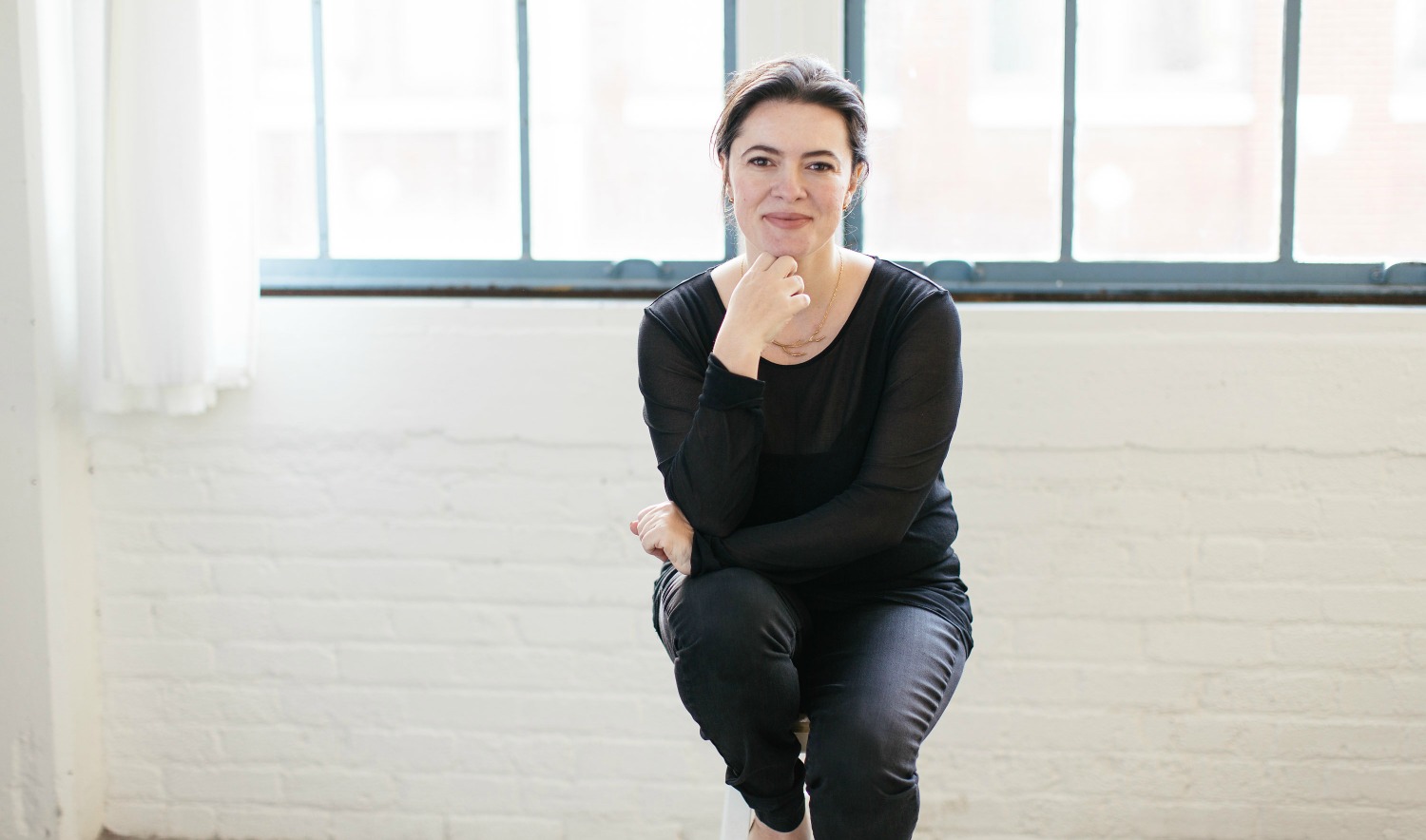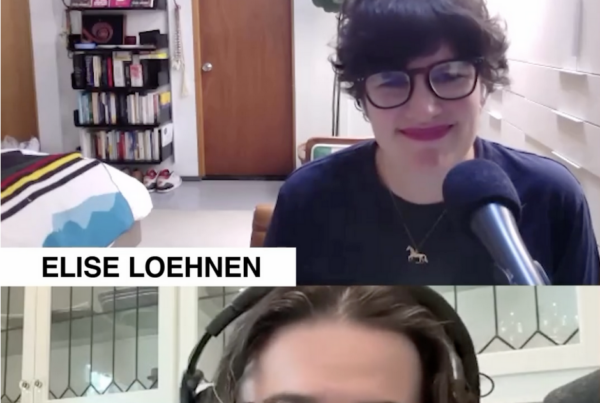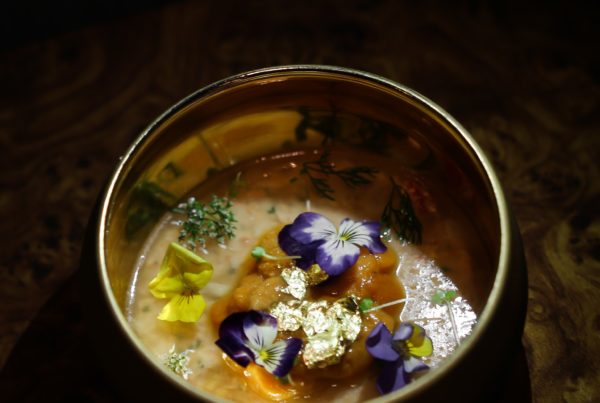A few weeks ago, I headed into the dance studio for a class for the first time since my daughter was born.
It took a lot to get to a class.
It took all these months for me to feel up for it.
It took being willing to give it a big chunk of time on the calendar.
It took figuring out what the heck kind of bra works for leaping through the air, for a postpartum nursing mother.
But mostly, of course, it took what it takes for all of us when it is time to be a beginner again: courage. It took being willing to experiment with a new class, having no idea how I’d fare, or what uncomfortable moments might be part of it.
I walked in, and immediately saw all the dancers doing what looked like very serious pre-class stretches. I watched myself choose not to be intimidated by that. There were moments of the class when a younger me would have felt embarrassed about what I couldn’t do, moments when a younger me would have been panicked about what I was being asked to attempt – in front of the rest of the group, no less. There were many moments when a younger me would have been critical, even ashamed, of the body reflected back to me in the mirror.
But this experience (mostly) wasn’t like that. Maybe because of being a little older, maybe because having walked through the fires of motherhood x2, this was different.
This time, I could comprehend that I was simply a newbie in this class; nothing personal about that. I was able to chuckle at myself when needed and – most importantly – I was able to enjoy.
Ninety minutes later, when the class ended, I was not on cloud nine. I was on cloud ninety-nine.
I had to keep apologizing to people for talking so much, and so fast, all afternoon, but I couldn’t stop myself – there was so much energy coursing through.
My best friend called to tell me that the contrast between the tone of my voicemail to her that morning (heavy, somber) and the one from three hours later post dance class (utterly giddy) had her amused for the rest of the day.
Why am I sharing this story with you?
Because we all have these things: the earthly pursuits that are our special connection lines to vitality and joy.
Maybe one of yours, like mine, is dance, but most likely it is not because Life/God/Source has generously distributed these pursuits among us, a part of our individuality.
Some source whispered “dance” over me and pressed it into my soul before I was born. And to you, perhaps some divinity whispered “paint” or “sing” or “run” – whatever those sacred pursuits are for you.
Today, I want to invite you to remember. What are your special connection lines to vitality and joy? Growing something in your garden? Playing the piano? Taking a solo hike? Name at least two for yourself. Remember.
1. _________________
2. _________________
Now, here’s the thing: you’d think, given all I just shared, that I would be committed to regular dancing. At times, I have been. But sometimes, I’ve gone months without dancing. Sometimes, years.
We do this – we starve ourselves from the pursuits that we most love and that best love us back.
It appears to make no sense: if these activities bring us so much joy, why aren’t we doing them with fervor and commitment, arranging life to squeeze them in however we can? In fact, the opposite is what usually transpires. We struggle to do them at all.
We take long fasts from what most feeds us. Why?
These are some of the reasons why I’ve turned away from my dearest loves in my own life, reasons I also see at play in the lives of the women I work with.
1. It takes practical commitment and creativity to make it happen. In the demands of daily life, what we most love often falls to the wayside, as we focus on paying the bills and caring for others. You may be in a culture like the U.S.’s that does not make it easy to fit in time for pursuits outside of work and family responsibilities. Long work hours, having weak community ties and living apart from extended family all add up to incredibly demanding schedules for so many of us. It’s hard to make it happen.
2. We lose touch. Something happens in our life that causes us to stop doing the things we love (we get busier, we change locations, we go through an illness or intense period of caregiving, and so on) and during it, we forget what brings us bliss.
3. We buy the lie that adulthood is about something else. We’ve consciously or unconsciously decided adulthood is about something else – responsibilities and the grind. We forget to even ask, what can I do that brings me bliss? We forget that daily life can include that question, and its answer.
4. Fear and the inner critic build a barrier between ourselves and what we love. Sometimes we’ve become paralyzed by the message that because we love this thing so much we should get “good” at it. We start to think that being “good at it,” (winning first place prize at the piano recital, getting published, doing x in a way that people will pay for) is the point. Then if we aren’t winning the medals or the clients or the applause (or fear we won’t in the future), we stop doing our thing. I am here to tell you the point was never to be good. This, your relationship with this thing, is the great romance of your life.
5. Numbness is kinda cozy. There resides in us a force that doesn’t want us to do the things that bring us alive. When we do those things that bring us alive, we feel more – all of it, the good and the bad. Old unresolved issues ask for attention. Inconvenient life and career dreams that we’ve ignored find a way back in to our consciousness, through all those energy channels that this beloved pursuit has opened up. Rising to the occasion of this uncertain, tender, complicated human experience is both far more ecstatic and far less comfortable than the numbed out, dulled down zone of stasis and soul denial. The part of us that likes comfort (but doesn’t care about joy) will lead us to fast from soul nutrients and eat the low quality junk food of distractions and busyness and empty to-do’s instead. We cannot consistently practice what we love without a larger willingness to feel our feelings, confront our real path, and accept the ongoing change and evolution that that path will bring in our lives.
6. Ego likes its shell. When we are truly doing what we most love, the experience brings us into a sense of unity with the materials we are working with, the task we are engaged in, the others around us, and the larger whole. We start to transcend the boundaries of the ego, the small self, in exchange for a larger sense of connection. Ego doesn’t like that, and we resist that change. (I’ve written more about that here.)
So what is next? Start with these steps:
1. Remember what you most love, those few most special pursuits that bring you alive. Name what they are, just to yourself.
2. It may be that you need to cry or grieve a little for the time lost in not doing them. Allow yourself to feel those feelings … and at the same time, don’t get stuck there.
3. Notice what has been a barrier to you practicing your love. Is it primarily about the inner critic for you? Or the logistical challenges? Or are there stronger drives pushing you to stay in a numbed out state? Look with compassion at what has stood in the way.
4. Put a date on the calendar to do the thing you love. Tell one supportive person about it so you are held (lovingly) accountable to make it happen!
And last but not least, if you are wanting to live a life you love, and do work that fills you with a sense of meaning and joy, check out my Playing Big Course. You can find all the information about it, hear from grads, and get on the advance notice list HERE.
Love,
Tara







